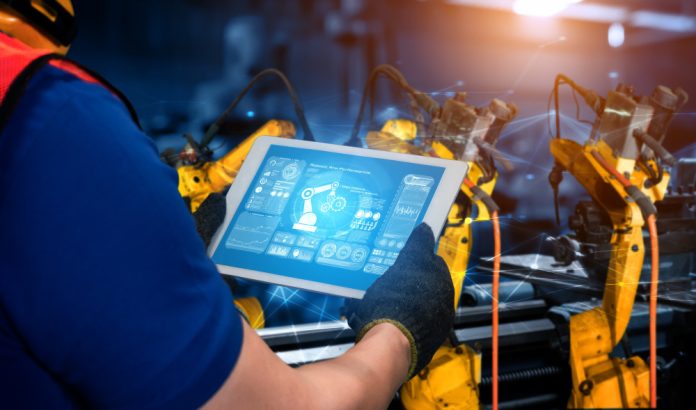The manufacturing sector in India is undergoing a profound transformation. Industry 4.0, often referred to as the Fourth Industrial Revolution, is reshaping how factories operate, how products are made, and how supply chains function. Industry 4.0 integrates digital technologies, such as automation, data exchange, and cyber-physical systems, into the heart of manufacturing.
This evolution is being driven by the demand for greater efficiency, flexibility, and innovation. India, with its burgeoning manufacturing sector, is increasingly embracing these cutting-edge technologies to stay competitive on the global stage.
What Is Industry 4.0?
Industry 4.0 is built on the principles of automation, real-time data sharing, and advanced connectivity. It includes technologies like IoT (Internet of Things), big data, artificial intelligence (AI), and robotics that are integrated into manufacturing processes to enable smarter decision-making, optimize operations, and create products more efficiently.
At its core, Industry 4.0 is about creating “smart factories” where everything from production equipment to the entire supply chain is interconnected. This creates a digital ecosystem that allows manufacturers to make real-time decisions based on accurate data, improving productivity, quality, and cost-efficiency.
Impact on the Indian Manufacturing Landscape
For India, Industry 4.0 represents a huge leap forward. Traditionally, India’s manufacturing sector has relied on labor-intensive processes and lower automation levels compared to global standards. However, the adoption of Industry 4.0 technologies is enabling manufacturers to increase productivity and reduce dependency on manual labor, making operations more cost-efficient.
India’s manufacturing sector, from automobiles to electronics, is increasingly adopting automation to streamline production lines. For example, automotive manufacturers are employing robotic assembly lines that increase throughput and precision, while reducing human error and labor costs.
Challenges in the Adoption of Industry 4.0
Despite the promise, there are significant challenges to fully embracing Industry 4.0 in India. The high initial investment costs for implementing automation and digital technologies are a deterrent for many small and medium enterprises (SMEs).
Furthermore, the skills gap remains an obstacle. Workers in traditional manufacturing roles need to be reskilled to operate advanced automated systems and manage AI-driven processes.
However, industry bodies like IMTMA and CII are actively promoting training programs to help upskill India’s manufacturing workforce. They are also working with the government to provide financial incentives for businesses to adopt Industry 4.0 technologies, making it easier for them to make the transition.
The Road to Industry 4.0: A Collaborative Effort
As India progresses toward Industry 4.0, collaboration between manufacturers, technology providers, and government bodies will be key. The CII and IMTMA are at the forefront of driving this change, ensuring that manufacturers are not only adopting new technologies but are doing so in a way that aligns with global best practices.
By embracing automation, big data, and AI, India’s manufacturing sector has the potential to enhance global competitiveness, create new jobs, and contribute to economic growth. Industry 4.0 is not just about advanced technologies; it’s about building a future-ready, sustainable manufacturing ecosystem.












